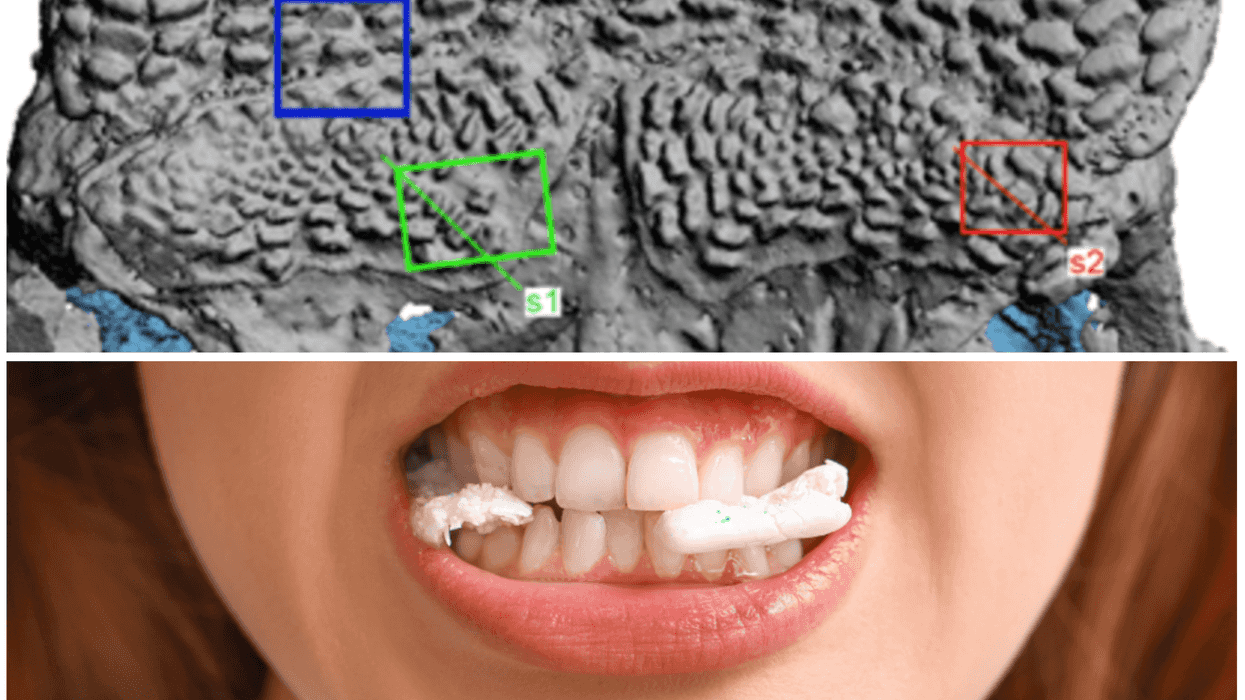You can typically spot a bad restaurant from a mile away: Dingy front windows obscure what’s inside as flies hover around a menagerie of cast-off chairs blocking the entrance. Patrons who resemble insane asylum escapees grumble over cigarettes; a massive Trump sign protrudes from the roof, and there’s nothing that can cut through the smell of hundred-year-old grease. Or at least, that’s what the hot dog place around the corner from me is like—a miserable hovel by the name of Oki Dog. At the corner of Fairfax and Willoughby in Los Angeles, it is a pitiful sight to behold.
In this age of online reviews, highfalutin foodies, and Pinterest worthiness, it’s hard to understand how a place like Oki Dog manages to stay open at all. Online, it houses some of the most hilarious yet appalling reviews I’ve ever seen—and this is coming from someone who’s made a hobby out of reading bad Yelp reviews.
According to one such review posted by Bridgyn O., “There were more flies than people eating here. The fries tasted like they were deep-fried in ball sweat.” Jack K. writes, “Oki Dog is a great place to begin a gradual descent into suicide,” while Sam P. says, “I could make a fortune by opening a stomach pumping clinic next door to Oki Dog.”
Somehow, Oki Dog manages to have an overall rating of 3.5 stars on Yelp. But how—how can this be? Consider the Ohio State University study made famous for its discouraging statistic that 60 percent of restaurants fail in their first year, while an even gloomier 80 percent will close before they reach five years. Many good restaurants fail due to a lack of funding, bad management, or ill-conceived menus. Many more should fail due to abysmal food and nonexistent service, but by some strange twist of fate, they press on.
[quote position="left" is_quote="true"]There were more flies than people eating here. The fries tasted like they were deep-fried in ball sweat.[/quote]
These days, there’s no lack of information online promising restaurant owners they can turn bad reviews into better business practices as long as they follow a few key pieces of advice. One such resource is The Digital Restaurant, a restaurant marketing agency that specializes in caterers and pizzerias. On its website, the company claims that a one-star increase in a restaurant’s Yelp rating can result in a 5 to 9 percent revenue increase. It would seem that every eatery would want to get in on a financial bump of that magnitude, especially if it required relatively little effort.
Then again, there are restaurants that turn a profit because of their terrible online ratings. One bay area restaurant in particular, Botto Bistro, is flipping the script, offering patrons 50 percent off any pizza in exchange for a one-star review. Apparently, diners are eating up the stunt and participating with one-star reviews even if they’ve never visited the bistro in question.
[quote position="full" is_quote="false"]The company claims that a one-star increase in a restaurant’s Yelp rating can result in a 5 to 9 percent revenue increase.[/quote]
Reading through the sarcastic reviews, they’ve clearly nailed the anti-capitalist, anti-Internet statement they were aiming for. But it takes a backbend to fully understand the message, and as a business model, the irony-adoring, Bay Area tech bubble seems like the only place where this strategy could succeed.
Amidst bias and reverse psychology, it can be hard to find a reason to trust Yelp ratings at all. To get to the bottom of this conundrum, I went in search of the worst L.A.-based restaurants I could find. Which is how I found Graffiti Sublime Coffee, a two-star café in Hancock Park. While there’s no lack of negative reviews calling out the café’s inflexible policies and rude staff, there are just as many positive reviewers extolling the place for the same reasons.
As with many other low-rated establishments, patrons seem to either love or hate the place. And while reading bad Yelp reviews can be a fun, late-night pastime, it’s not exactly the rabbit hole you want to go down if you’re looking for concrete answers. Reaching out to people about their good reviews of Graffiti Sublime and getting borderline illiterate responses made me skeptical of the skeptics themselves.
[quote position="right" is_quote="true"]That’s the stuff that makes people who own restaurants want to pull their hair out.[/quote]
Luckily, Yelp user Jon K. got back to me after I asked him about his five-star review of Graffiti Sublime. I wanted to know if there was something enjoyable about the café that most people simply don’t get. For example, one negative review claimed Graffiti Sublime refused to serve a woman and her child because of their adults-only policy and sent her back out into the “100 degree heat.” Others mentioned dismal service and “an overall bad vibe.”
Jon countered that assessment, saying, “Their strict rules keep people in check which gives that café a quiet and professional ambiance. It's clean and you don't have weird (and/or smelly) people hanging around all day (like you might find at a Starbucks). I honestly have no clue why anyone would be against their rules.”
While he did admit that “the staff did seem like they hate their lives and didn't really care to be a little cheerful,” it was the smelliness of the people that mattered most to Jon. And in this way, all of our needs are so drastically different it’s no wonder why we can’t come to a consensus.
[quote position="full" is_quote="true"]As long as they keep their overhead low, then it doesn’t matter. They can stay there until the world burns down.[/quote]
In my attempts to untangle the good reviews from the bad, I sought help from Farley Elliott, a longtime food writer and Eater LA’s senior editor. Having been published in LA Weekly, The New York Times, and LA Magazine along with having a masterful knowledge of LA’s kale-based, donut-obsessed food scene, I had a hunch he’d be able to inform my search for answers.
He points to L.A.’s sprawling landscape as the reason why bad restaurants tend to persist.
“In a city like Los Angeles, it’s relatively easy—by large, global, urban corridor standards—too exist as a small, independent restaurant,” says Elliott. “We’ve got a lot of land to go around, our lease agreements tend to be relatively low for all but the most prized destinations or previous restaurant iterations.”
This makes a lot of sense in Oki Dog’s case; its Fairfax location opened nearly three decades ago in 1989.
“If they own the building and the land, there’s absolutely no one who’s going to come kick them off,” Elliott explains, “and as long as they keep their overhead low, then it doesn’t matter. They can stay there until the world burns down.”
[quote position="right" is_quote="false"]Ratings will always be imperfect and so will people, leaving you to wonder which better reflects the other.[/quote]
While this wasn’t the answer I was hoping to hear, it does explain the proliferation of substandard restaurants in major cities. Elliott cites certain restaurants with massive, six-dollar plates of crab fried rice as perpetuating a vicious, exploitive cycle. While there are cases in which a couple or family runs a low-cost operation out of a building they bought years ago, there are the less-savory exceptions that more often prove to be the norm.
“You shouldn’t necessarily feel that comfortable paying $5.99 for a plate of seafood that probably doesn’t have a good history behind it, whether that’s slave trade fishing or who knows,” says Elliott. On top of that, peddlers of ultra-cheap, ridiculous portions likely aren’t paying their employees fairly either.
That being said, Elliott still thinks Yelp going away would be bad for the restaurant industry. As an avid Yelp user himself, Elliott sees value in the review aggregator as a comprehensive database. Most people in the restaurant industry, he says, would agree that the online review system is “at least off-balanced and at most out of whack.” He harkens back to the time Jon & Vinny’s in West Hollywood went up in flames, sparking one-star ratings from restaurant goers who were miffed by canceled reservations—even while knowing the joint was literally on fire.
“That’s the stuff that makes people who own restaurants want to pull their hair out,” says Elliott.
I asked him if there were any restaurants he really loved despite mediocre ratings, and right away, he told me about Alimento, an Italian restaurant in Silver Lake. At a measly three and a half stars, Elliott says Alimento is “hands down one of the best Italian restaurants in Los Angeles.”
Where’s this discrepancy coming from, then? Dollar-fifty water, says Elliott. In an effort to support the Silver Lake Reservoir Conservancy, an organization dedicated to improving the neighborhood’s water quality and open space, chef Zack Pollack charges a small fee for water and donates half. In an interview with LA Weekly in 2014, Pollack seems blithely unaware how much a water fee will irk customers when reporter Besha Rodell says, “You're going to get killed on Yelp for that $2 charge, you know that right?” To which he responds, “You think?”
That kind of gulf between chefs and diners makes qualified restaurant critics all the more important. Using Yelp to find every available option is one thing, but relying on a handful of trusted sources is something else altogether. But at the end of the day, Elliott says quality food, a great location, and strong business acumen will determine a restaurant’s success better than any review—good or bad.
Ultimately, maybe what we want isn’t always what’s best for us, whether that’s free, unlimited water or dining in a burning building. Ratings will always be imperfect and so will people, leaving you to wonder which better reflects the other. Luckily, consumers exercise the most power by deciding which businesses to reward with their patronage and which to ignore. It’s up to us to make socially responsible choices, even if that means cooking at home instead of loading up on one-dollar carnitas tacos. Otherwise, like a hot dog with an impossible shelf life, it might be that the banes of the restaurant world will outlive us all.
GOOD reached out to Oki Dog for comment and when asked how the business is faring, the manager said, “I don’t know what these questions are, lady.”






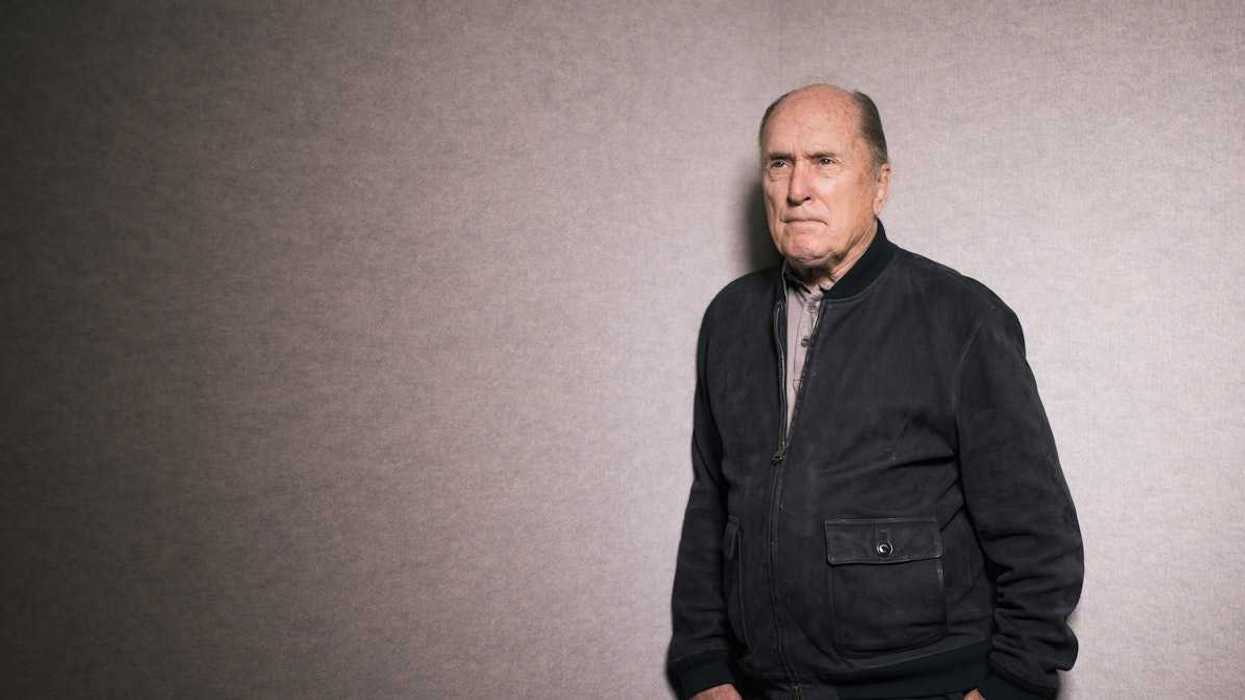









 A woman swims in the oceanCanva
A woman swims in the oceanCanva A happy-looking dolphin popping out of the waterCanva
A happy-looking dolphin popping out of the waterCanva

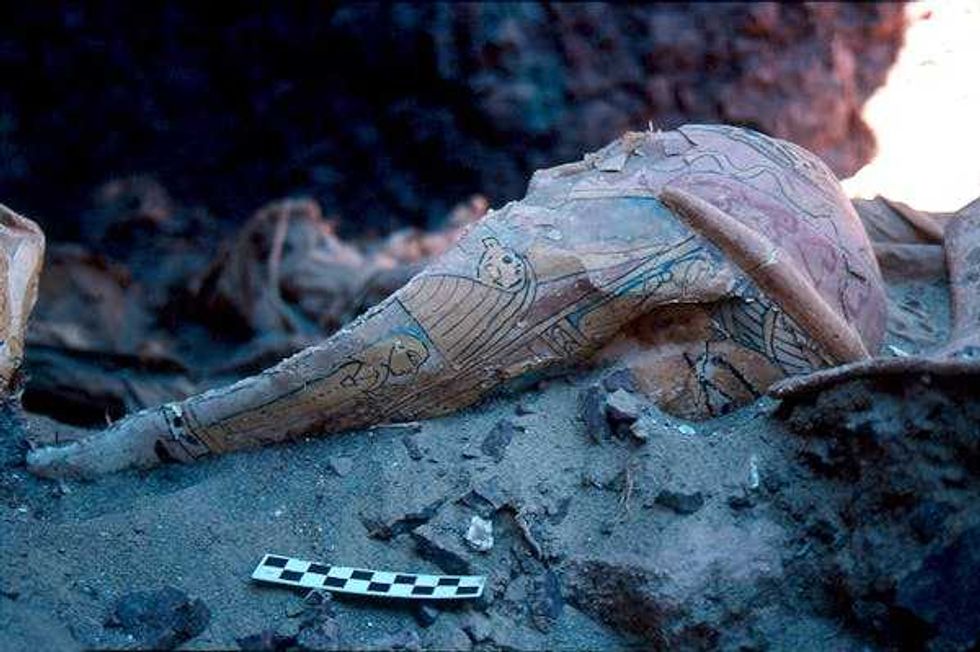 Reuse over time and looting shifted and damaged the contents of an ancient Egyptian tomb. This displaced mummy mask could have a relationship to other artifacts already in museums around the world.Carlo Rindi Nuzzolo
Reuse over time and looting shifted and damaged the contents of an ancient Egyptian tomb. This displaced mummy mask could have a relationship to other artifacts already in museums around the world.Carlo Rindi Nuzzolo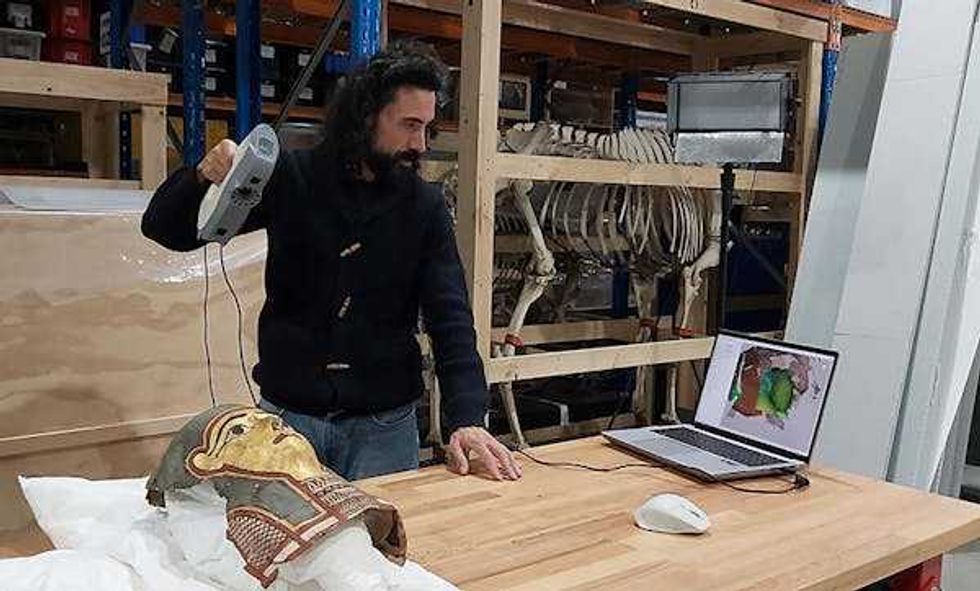 Archaeologists can use handheld 3D scanners to noninvasively map objects in very fine detail.Carlo Rindi Nuzzolo
Archaeologists can use handheld 3D scanners to noninvasively map objects in very fine detail.Carlo Rindi Nuzzolo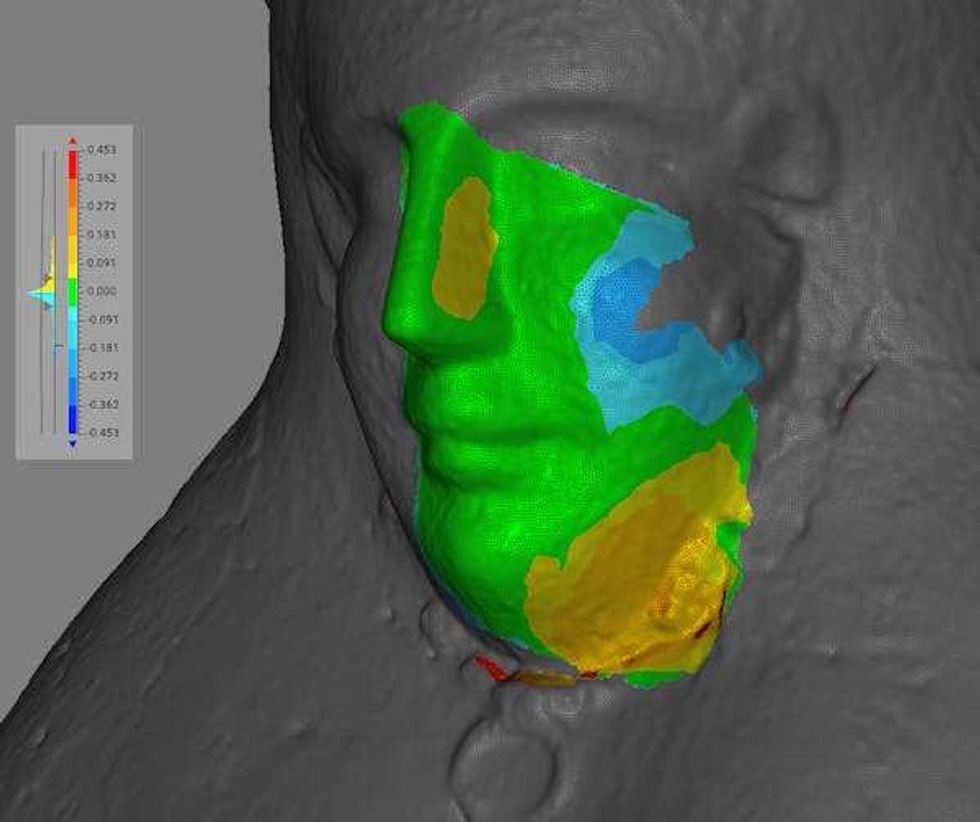 The mask reference surface is shown in gray, while the aligned fragment is colored based on the surface-to-surface distance at each point. Green indicates a good match with almost no distance. Cooler colors show areas where the fragment lies below the reference mask, and warmer colors show where it lies above.Carlo Rindi Nuzzolo
The mask reference surface is shown in gray, while the aligned fragment is colored based on the surface-to-surface distance at each point. Green indicates a good match with almost no distance. Cooler colors show areas where the fragment lies below the reference mask, and warmer colors show where it lies above.Carlo Rindi Nuzzolo The mask fragment was a very close match to a complete mask, suggesting they were made in the same mold.Carlo Rindi Nuzzolo
The mask fragment was a very close match to a complete mask, suggesting they were made in the same mold.Carlo Rindi Nuzzolo
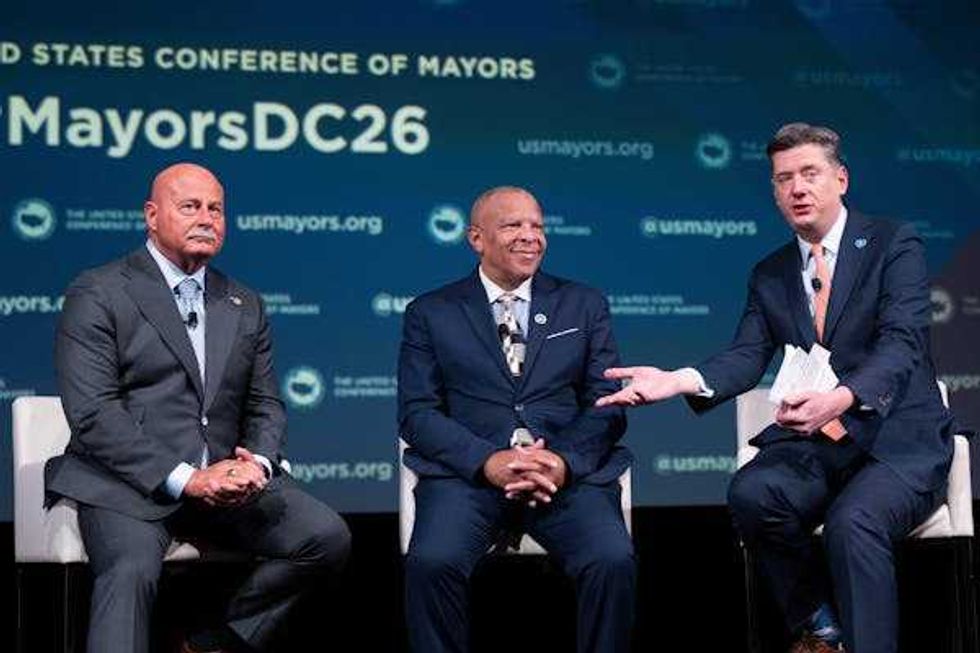 When mayors come together, they often find they face common problems in their cities. Gathered here, from left, are Jerry Dyer of Fresno, Calif., John Ewing Jr. of Omaha, Neb., and David Holt of Oklahoma City.
When mayors come together, they often find they face common problems in their cities. Gathered here, from left, are Jerry Dyer of Fresno, Calif., John Ewing Jr. of Omaha, Neb., and David Holt of Oklahoma City. Mayors can find themselves caught up in national debates, as did Minneapolis Mayor Jacob Frey over the Trump administration’s immigration enforcement policies in his city.
Mayors can find themselves caught up in national debates, as did Minneapolis Mayor Jacob Frey over the Trump administration’s immigration enforcement policies in his city.
 A labratory mouse checks out a microscopeCanva
A labratory mouse checks out a microscopeCanva
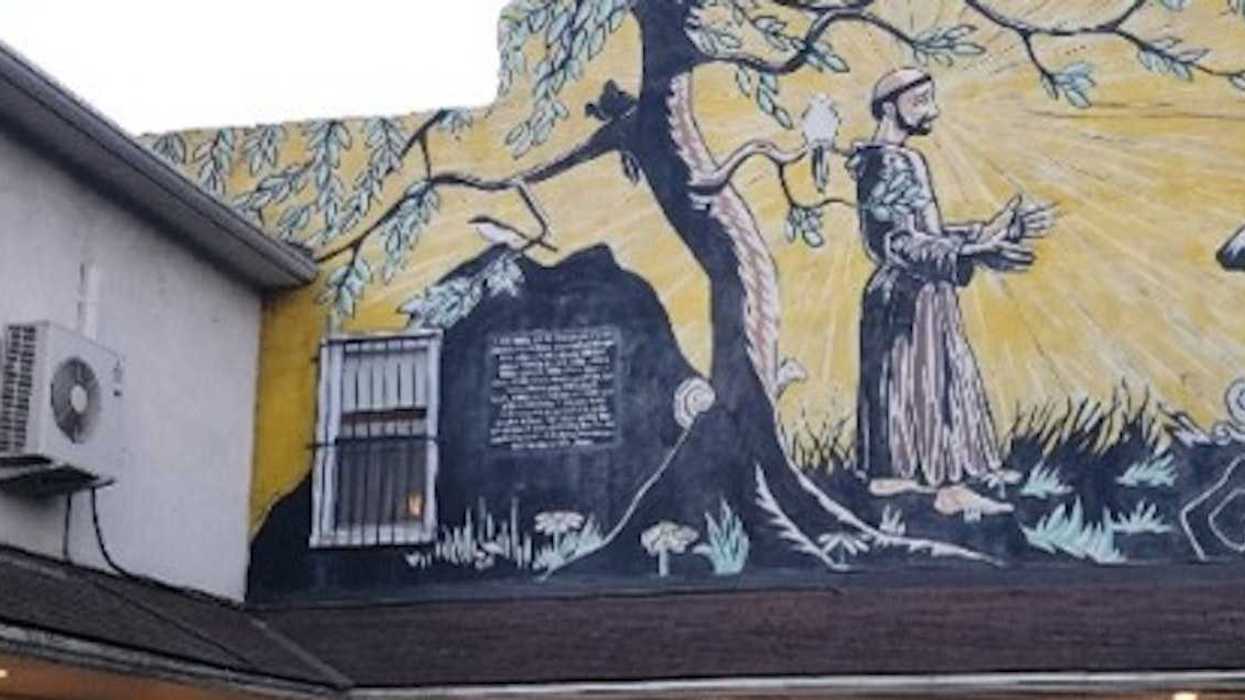
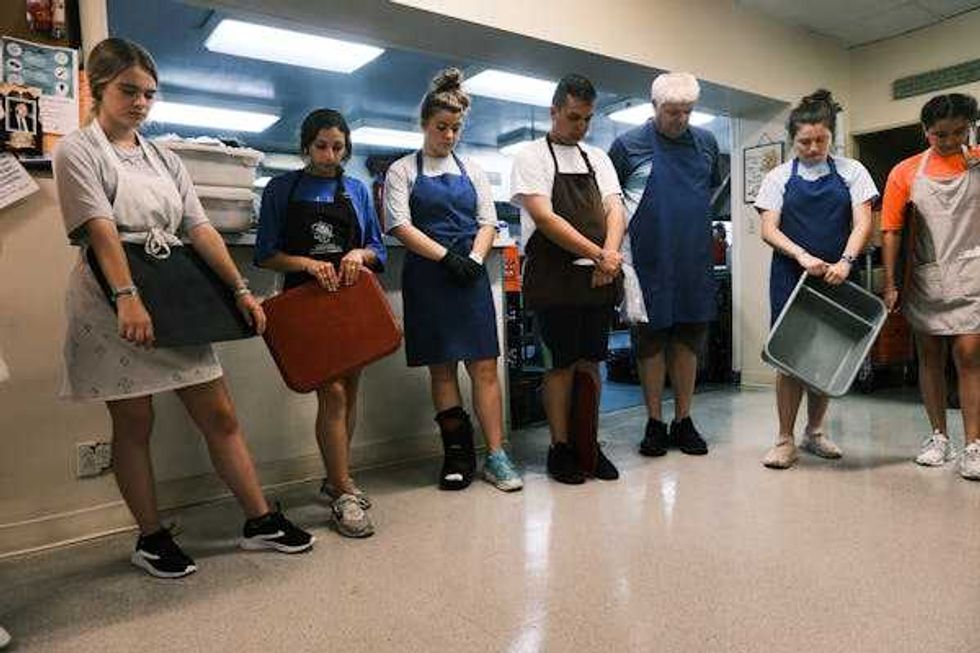 Volunteers at the St. Francis Inn pray together before serving a meal on July 19, 2021.
Volunteers at the St. Francis Inn pray together before serving a meal on July 19, 2021.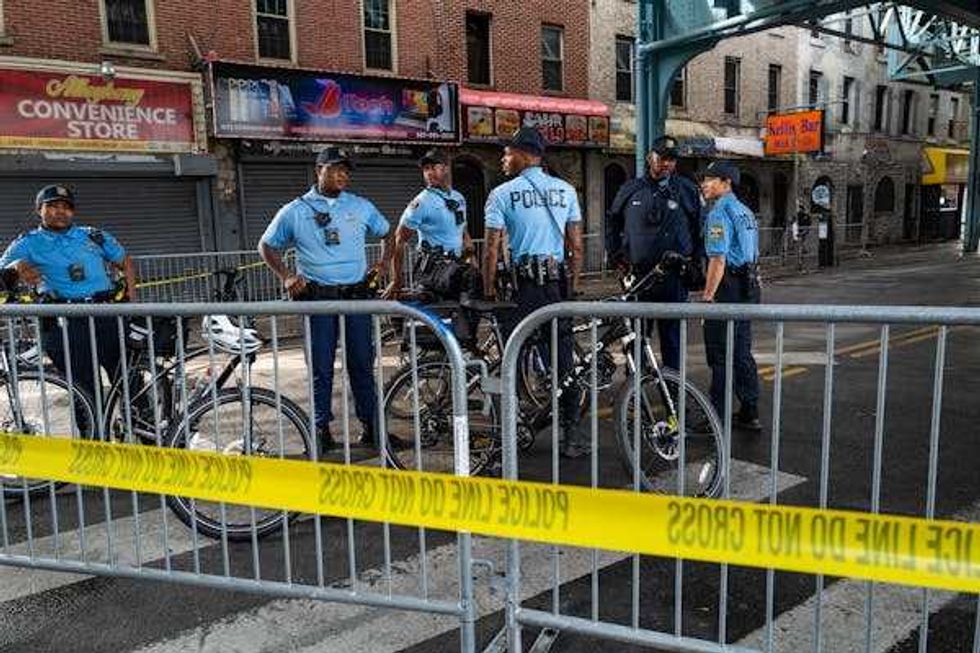 Police close down a section of Kensington Avenue to clear a homeless encampment on May 8, 2024.
Police close down a section of Kensington Avenue to clear a homeless encampment on May 8, 2024.